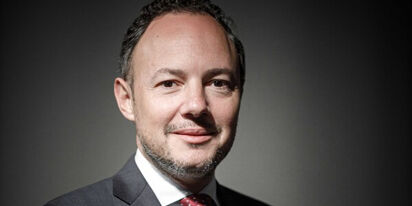
This profile is seventeen of Queerty’s 2020 Out For Good series, recognizing public figures who’ve had the courage to come out and make a difference in the past year, in celebration of National Coming Out Day on October 11.
Name: Renée Richards, 86
Bio: Renée Richards is a New York City-born ophthalmologist and former tennis star who successfully sued the United States Tennis Association in 1977 after the organization barred her from competing in women’s tennis following her gender confirmation surgery.
Richards was inducted into the USTA Eastern Tennis Hall of Fame in 2000 and the National Gay and Lesbian Sports Hall of Fame in 2013. She is the subject of the 1986 television film Second Serve and the 2011 ESPN documentary Renée.
How about we take this to the next level?
Our newsletter is like a refreshing cocktail (or mocktail) of LGBTQ+ entertainment and pop culture, served up with a side of eye-candy.
Coming Out: Richards was outed as transgender in 1976 by reporter Richard Carlson, father of Fox News’ Tucker Carlson, according to The New Yorker. After the United States Tennis Association blocked Richards from playing professionally, she sued the organization, demanding to compete in the U.S. Open.
Many players supported her flight — including Billie Jean King and Martina Navratilova — but many did not. Two players even arrived at a tournament wearing T-shirts emblazoned with a transphobic phrase: “I am a real woman.”
How She Made a Difference: Richards v. United States Tennis Association made its way to the New York Supreme Court case, where Judge Alfred Ascione sided with Richards, stating that the “unfounded fears and misconceptions of defendants must give way to the overwhelming medical evidence that this person is now female.” As a result, Richards was allowed to compete in the 1977 U.S. Open, and she made it to the doubles final that year.
Richards’ case marked a landmark moment in the fight for transgender equality — and for trans athletes in particular — but she later said, “Maybe not even I should have been allowed to play on the women’s tour.” She also publicly opposed the International Olympic Committee’s 2004 ruling that transgender individuals can compete in the Olympic Games after they’ve had surgery and two years of hormonal therapy.
Words of Wisdom:
“After 30 years of apologizing to myself and to the world in general, I was through apologizing.” – Renée Richards in her memoir Second Serve



















